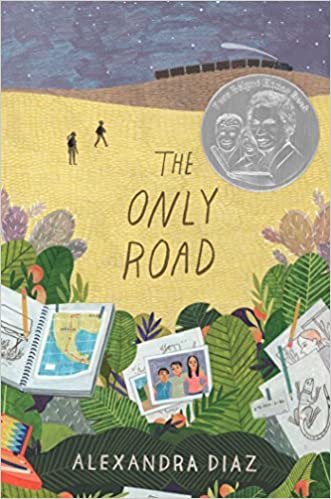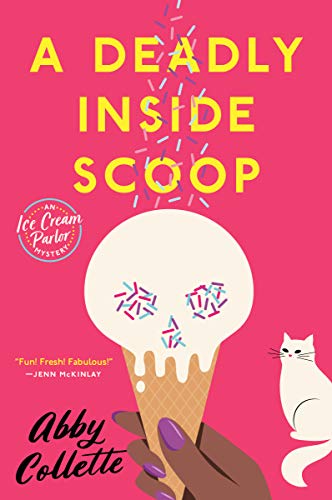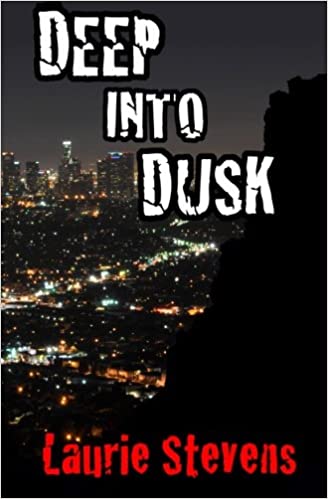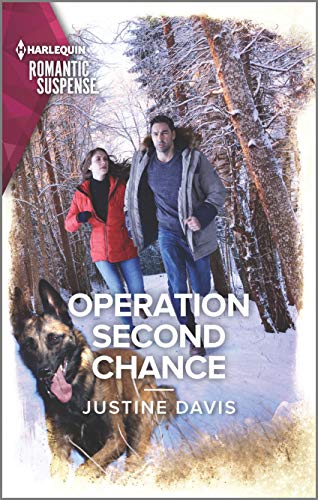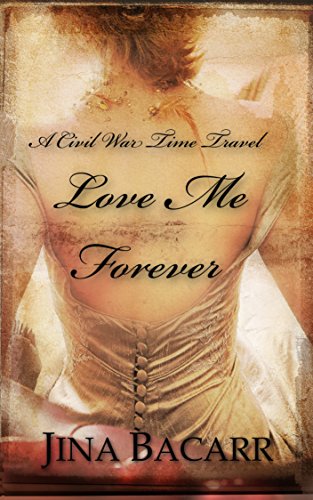Career Milestones
April 6, 2012 by Linda O. Johnston in category Pets, Romance & Lots of Suspense by Linda O. Johnston tagged as Berkley Prime Crime, Harlequin Nocturne, Linda O. Johnston, writing milestones I’m bringing this up because I have just reached a couple of milestones. First, my new release HOUNDS ABOUND, my third Pet Rescue Mystery for Berkley Prime Crime, is my thirtieth published novel.
I’m bringing this up because I have just reached a couple of milestones. First, my new release HOUNDS ABOUND, my third Pet Rescue Mystery for Berkley Prime Crime, is my thirtieth published novel. Visit Linda at www.LindaOJohnston.com or KillerHobbies.blogspot.com
A Fantasy Life by Janet Quinn Cornelow
March 28, 2012 by A Slice of Orange in category A Fantasy Life by Janet Cornelow tagged as Janet Cornelow, Janet QuinnDressed For Dying is now up at Kindle and Nook with a new cover done by Lex Valentine, an OCC member. Sean Madigan, a reporter in 1892 New York City, is after his first big murder story, a story that could make his career. Entangled in the story are the sweatshops where his sweetheart works. His chasing the story puts her in danger and he must keep her safe and get the story. Kindle – http://www.amazon.com/Dressed-For-Dying-ebook/dp/B007HQQC1G/ref=sr_1_fkmr0_1?ie=UTF8&qid=1331254339&sr=8-1-fkmr0
I am now two-thirds of the way through my new western time-travel titled A Chance for Love. Even with all of the classes I am teaching, I am finding time every week to work on the book. I hope to have the first draft done by the end of May.
This will be my granddaughter’s first Easter and I am going to buy her an Easter dress. This is the first little girl’s Easter dress I have ever gotten to buy. The boys were not really into Easter dresses. We are going out to dinner that night I am going to make sure she wears the dress. It is a great night to go out to eat since most everyone stays home.
Since my oldest son decided to put a new roof on the house and the leak in the bathroom roof is now fixed, I am redoing my front bathroom. My youngest, Rob, and I are going out on Thursday to pick out new tile for around the bathtub. It is so much fun to redecorate.
I am finding it hard to sit down and write now that the sun is out and it is warm. I think I’d rather be doing almost anything else. I’m waiting for Rob and his wife to come by with a recording of the baby’s heart beat. It is pretty cool that they can record it.
The Writing Life and More!
March 6, 2012 by Linda O. Johnston in category Pets, Romance & Lots of Suspense by Linda O. Johnston, Writing tagged as Berkley Prime Crime, cozy mysteries, Linda O. Johnston, writing life Am I done yet? Not quite! World Book Night is April 23, and I’ll be giving away copies of Sue Grafton’s Q IS FOR QUARRY.
Am I done yet? Not quite! World Book Night is April 23, and I’ll be giving away copies of Sue Grafton’s Q IS FOR QUARRY. Linda O Johnston’s Pet Rescue Mysteries, a spinoff from her Kendra Ballantyne, Pet-Sitter mystery series for Berkley Prime Crime, feature Lauren Vancouver, a determined pet rescuer who runs a no-kill shelter. Of course, in this cozy mystery series, “no-kill†refers to the animals, not people! Her most recent Pet Rescue Mystery is THE MORE THE TERRIER , and next will be HOUNDS ABOUND , an April 2012 release.
Visit Linda at www.LindaOJohnston.com or KillerHobbies.blogspot.com
A Fantasy Life by Janet Quinn Cornelow
February 28, 2012 by A Slice of Orange in category A Fantasy Life by Janet Cornelow tagged as Janet Cornelow, Janet QuinnWriter’s block.
That is what I have been suffering from for the last three days while I tried to figure out what I was going to blog on. I still do not really have a topic. I think I have graded too many not so good essays for the classes I teach. It seems to be affecting my mind.
I have been doing well on my new book, A Chance For Love, which is a western time travel. I am over half way done, and when I have time to write, it is just flowing right along. I like books that know where they are going. The fantasy story I started last year is still stuck – more writer’s block.
I have the rights back as of Saturday to Dressed for Dying, my one mystery book. I forgot to order a new cover for it, so it probably will not go up at Kindle until the end of next week. I was bad about keeping track of when the rights came back to me. I have to do better on the next one.
I have spent part of the afternoon formatting Dressed for Dying to go up on Kindle and Nook. It isn’t difficult, but it is boring. I kept forgetting where I was, so I decided to blog instead. I can at least have the book ready to go when I do get the cover from Lex Valentine.
My big news is that I am going to be a grandmother again. For those who know my youngest son Robby, he is going to be a father in late September. They don’t know the sex yet, but they did get to hear the heart beat today, so they were excited.
0 0 Read moreKiss Me or Kill Me
February 6, 2012 by Linda O. Johnston in category Pets, Romance & Lots of Suspense by Linda O. Johnston, Writing tagged as Berkley Prime Crime, cozy mysteries, Linda O. Johnston, Pet Rescuer Mysteries, writingLindaOJohnston.com
Killerhobbies.blogspot.com
HOUNDS ABOUND, April 2012
Berkley Prime Crime
Affiliate Links
A Slice of Orange is an affiliate with some of the booksellers listed on this website, including Barnes & Nobel, Books A Million, iBooks, Kobo, and Smashwords. This means A Slice of Orange may earn a small advertising fee from sales made through the links used on this website. There are reminders of these affiliate links on the pages for individual books.
Search A Slice of Orange
Find a Column
Archives
Featured Books
DEEP INTO DUSK
In the second pulse-pounding thriller in the series, Detective Gabriel McRay is once again forced to face his inner demons
More info →OPERATION SECOND CHANCE
His guilt tore them apart
Can the truth set them free?
Newsletter
Contributing Authors
Search A Slice of Orange
Find a Column
Archives
Authors in the Bookstore
- A. E. Decker
- A. J. Scudiere
- A.J. Sidransky
- A.M. Roark
- Abby Collette
- Alanna Lucus
- Albert Marrin
- Alice Duncan
- Alina K. Field
- Alison Green Myers
- Andi Lawrencovna
- Andrew C Raiford
- Angela Pryce
- Aviva Vaughn
- Barbara Ankrum
- Bethlehem Writers Group, LLC
- Carol L. Wright
- Celeste Barclay
- Christina Alexandra
- Christopher D. Ochs
- Claire Davon
- Claire Naden
- Courtnee Turner Hoyle
- Courtney Annicchiarico
- D. Lieber
- Daniel V. Meier Jr.
- Debra Dixon
- Debra H. Goldstein
- Debra Holland
- Dee Ann Palmer
- Denise M. Colby
- Diane Benefiel
- Diane Sismour
- Dianna Sinovic
- DT Krippene
- E.B. Dawson
- Emilie Dallaire
- Emily Brightwell
- Emily PW Murphy
- Fae Rowen
- Faith L. Justice
- Frances Amati
- Geralyn Corcillo
- Glynnis Campbell
- Greg Jolley
- H. O. Charles
- Jaclyn Roché
- Jacqueline Diamond
- Janet Lynn and Will Zeilinger
- Jaya Mehta
- Jeannine Atkins
- Jeff Baird
- Jenna Barwin
- Jenne Kern
- Jennifer D. Bokal
- Jennifer Lyon
- Jerome W. McFadden
- Jill Piscitello
- Jina Bacarr
- Jo A. Hiestand
- Jodi Bogert
- Jolina Petersheim
- Jonathan Maberry
- Joy Allyson
- Judy Duarte
- Justin Murphy
- Justine Davis
- Kat Martin
- Kidd Wadsworth
- Kitty Bucholtz
- Kristy Tate
- Larry Deibert
- Larry Hamilton
- Laura Drake
- Laurie Stevens
- Leslie Knowles
- Li-Ying Lundquist
- Linda Carroll-Bradd
- Linda Lappin
- Linda McLaughlin
- Linda O. Johnston
- Lisa Preston
- Lolo Paige
- Loran Holt
- Lynette M. Burrows
- Lyssa Kay Adams
- Madeline Ash
- Margarita Engle
- Marguerite Quantaine
- Marianne H. Donley
- Mary Castillo
- Maureen Klovers
- Megan Haskell
- Melanie Waterbury
- Melisa Rivero
- Melissa Chambers
- Melodie Winawer
- Meriam Wilhelm
- Mikel J. Wilson
- Mindy Neff
- Monica McCabe
- Nancy Brashear
- Neetu Malik
- Nikki Prince
- Once Upon Anthologies
- Paula Gail Benson
- Penny Reid
- Peter J Barbour
- Priscilla Oliveras
- R. H. Kohno
- Rachel Hailey
- Ralph Hieb
- Ramcy Diek
- Ransom Stephens
- Rebecca Forster
- Renae Wrich
- Roxy Matthews
- Ryder Hunte Clancy
- Sally Paradysz
- Sheila Colón-Bagley
- Simone de Muñoz
- Sophie Barnes
- Susan Kaye Quinn
- Susan Lynn Meyer
- Susan Squires
- T. D. Fox
- Tara C. Allred
- Tara Lain
- Tari Lynn Jewett
- Terri Osburn
- Tracy Reed
- Vera Jane Cook
- Vicki Crum
- Writing Something Romantic
Affiliate Links
A Slice of Orange is an affiliate with some of the booksellers listed on this website, including Barnes & Nobel, Books A Million, iBooks, Kobo, and Smashwords. This means A Slice of Orange may earn a small advertising fee from sales made through the links used on this website. There are reminders of these affiliate links on the pages for individual books.




